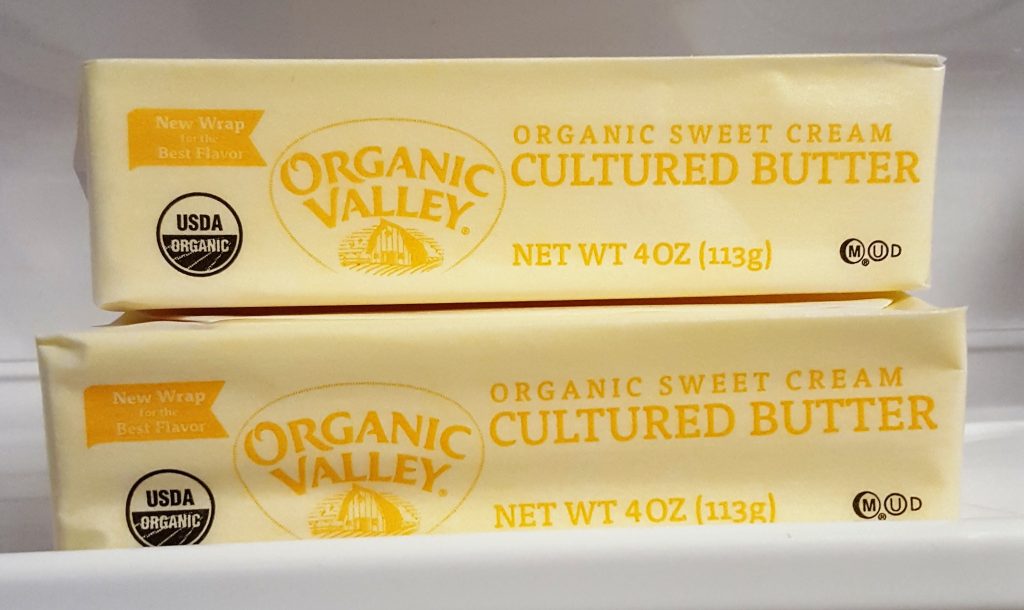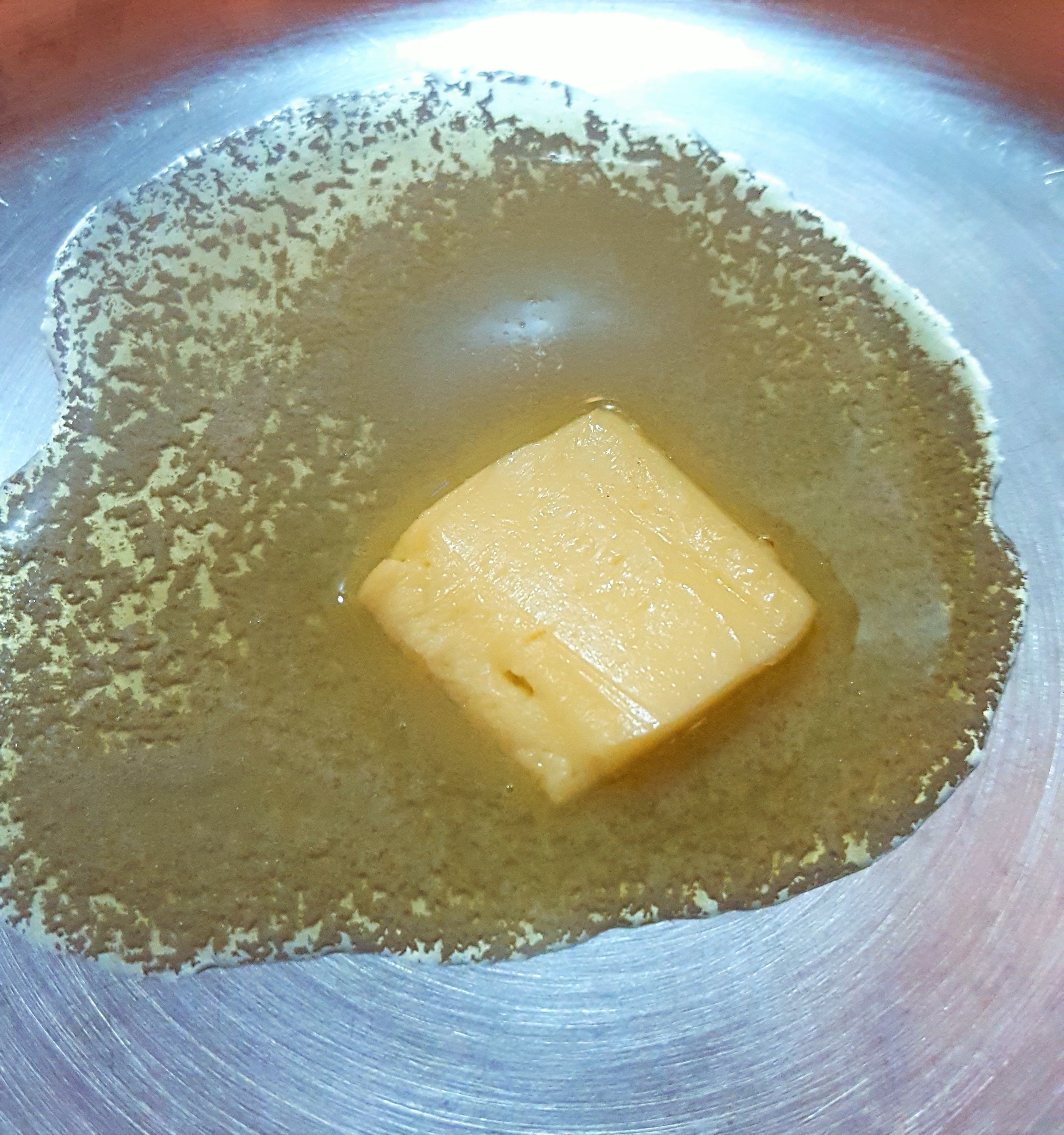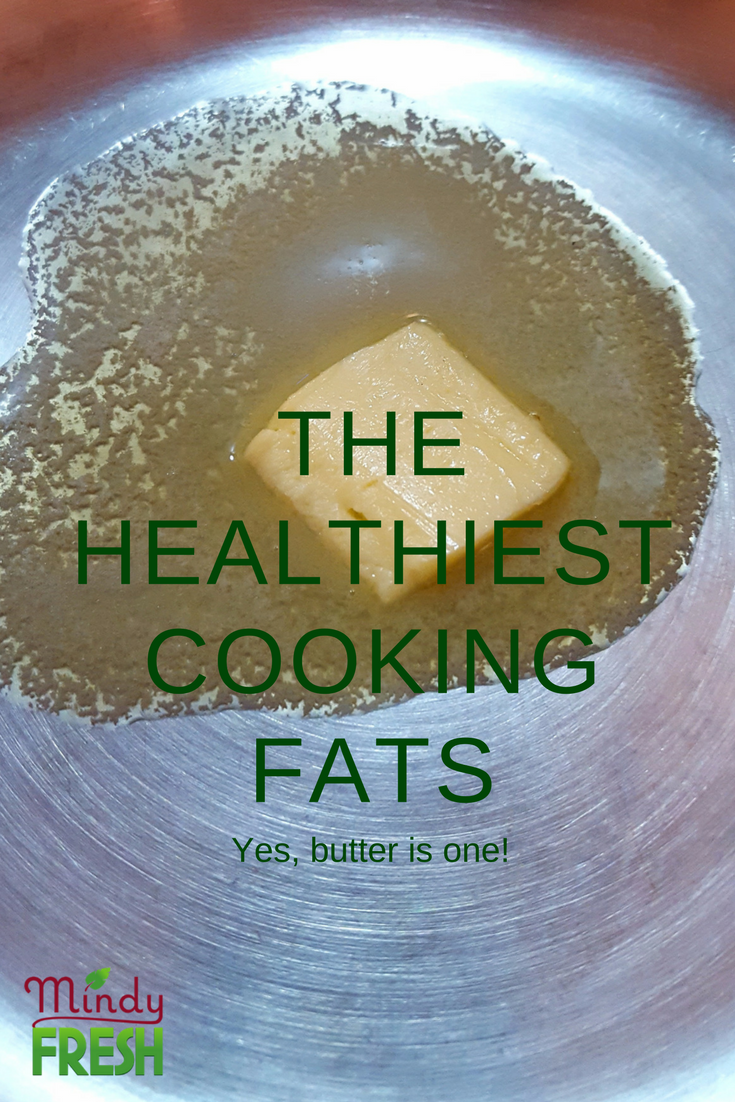Choosing a healthy cooking fat is important. The fats that are least refined and in a natural form are preferable. Healthy cooking fats also tend to be saturated in nature, which we have been told is bad for us. Contrary to popular belief, saturated fats do have benefits and are essential to the body. Read more about how Sugar Shifted the Blame To Fats. Avoiding the highly processed fats is one of the best steps towards health.
*Mindyfresh is a participant in the Amazon Services LLC Associates Program, an affiliate advertising program designed to provide a means for sites to earn advertising fees by advertising and linking to amazon.com.
Healthy Cooking Fats
Realizing that fats do change upon heating and will act in the body differently is a point to consider when reading labels. If an unhealthy oil is used, it can have some dire consequences. Oils have varying smoke points and chemical bonding patterns that determine how they will act in the body. Heating a fat beyond its smoke point negates the benefits of the fat as it was. Most of the time, adding the fat or oil after the food is cooked, is the best way to retain the nutrients.
Remember that these fats provide us with vitamins and help absorb the minerals we eat as well. Read about how fats don’t make us fat here. Keep in mind that if these fats come from poor sources or sick animals, it will not provide the best benefit. My favorite fats to use are coconut oil and butter. There are also several fats we should never consume..
We can see that most of the healthy cooking fats contain higher amounts of saturated fat. Contrary to popular headlines, good sourced saturated fat has benefits.
Saturated Fat Benefits
- Creates better LDL in blood to decrease heart disease risk
- Saturated fats like coconut oil increase HDL (good cholesterol)
- Short and medium fatty acids (like coconut oil) are used to quick energy and will not make you fat
- Increases bone health by helping minerals absorb
Coconut Oil
- 90-92% saturated fat – medium chain fatty acid, quick energy good stuff!
- Very stable and has hundreds of uses
- Contains lauric acid (also in breastmilk) that is anti-fungal and antimicrobial
- 350° smoke point
- Use for baking, also good for lower heat sauteing
Olive Oil
- Olive oil is best for salads and cooking under 375°
- Drizzle on vegetables after cooking or use in homemade dressings
- Okay for lower heat sauteing
Avocado Oil
- Best oil for higher heat cooking with a smoke point near 520°
- High in Vitamin E, which is an antioxidant
Butter
- Butter has the most easily absorbed form of vitamin A
- Helps body absorb and use minerals
- Has immune boosting effects
- Contains other trace minerals important in the body
- Smoke point of 350° -okay for baking and low temperature cooking

Ghee
- Ghee is “clarified butter” where all milk solids and water are removed, with a “nuttier” flavor
- Smoke point is 450°, good for higher heat cooking
- More short chain fatty acids, which are used for quick energy and not stored as fat
Lard or Tallow
-
- Use when frying things (though you shouldn’t fry often). It is a very stable fat.
- Stable up to 370°
- It is a better option than vegetable or canola oil to fry as it doesn’t break down in heat and comes from a natural source.
Fats to Never Use
Some fats and oils that were never meant to be part of our body. Fats such as vegetable oils are rancid and processed in a way that is difficult for us to digest and causes inflammation in the body. Labels commonly say “heart healthy”, but the chemical make up of the fat makes it very unstable and can quickly reverse its arrangement to become a “trans fat”. They are highly omega 6 (inflammatory) and the minimal omega 3 will no longer be present after cooking.
Rancid oils produce free radicals which can damage DNA and cell membranes and cause mutations. This really sets the stage for plaque build up in arteries or even tumors. You have been told polyunsaturated oils were healthy, but they can actually damage the body. I work for a healthcare company and am pretty disappointed the wellness team is recommending canola oil to cook with.
Canola Oil
- This is from the rapeseed, known to be not fit to consume based on association with heart lesions
- Goes rancid very easily
- This is where trans fats can come from in baked goods
Vegetable, Soybean, Corn, Sunflower Oils
- These are highly omega-6 which is inflammatory and potentially rancid from processing and pesticides on the plants
Margarine
- This is exposed to high pressure and temperatures when processed and dyed and flavored to be like butter
- There is absolutely nothing positive about margarine.
Sources
How To Determine What Fats To Cook With
Thrive Market Membership – all your healthy fat needs
Fresh Idea: Healthy cooking fats are real, unprocessed saturated fats. Stay away from vegetable and canola oils.







Pingback:How To Save Money To Make Room For Healthier Habits
Pingback:Fat is Healthy: The role of fat in the body and why it is necessary
Pingback:The Healthiest Diet
Pingback:Freezer Fudge Recipe: Use coconut oil, almond butter, and cacao powder for a delicious treat
Followmycravings
January 17, 2017A much needed and informative post… I love to cook with coconut oil. The aroma is fantastic
Mindy Voet
January 24, 2017Thank you! I love coconut oil too!
Shelby @Fitasamamabear
January 17, 2017Great post! Thank you for finally telling people not to use canola and vegetable oil (this is huge pet peeve of mine!). I’m a coconut oil or ghee person myself so awesome they made the list!
Mindy Voet
January 24, 2017Thank you! It bothers me so much too, I can’t believe people think it’s healthy (but how would they even know, right?).
GiGi Eats
January 17, 2017Your list of NEVER USE OILS = I 10000% agree! I love me some coconut, olive, macadamia nut oil and avocado oil!
Mindy Voet
January 24, 2017Thank you! Yes! I have never tried macadamia nut oil, that sounds delicious!